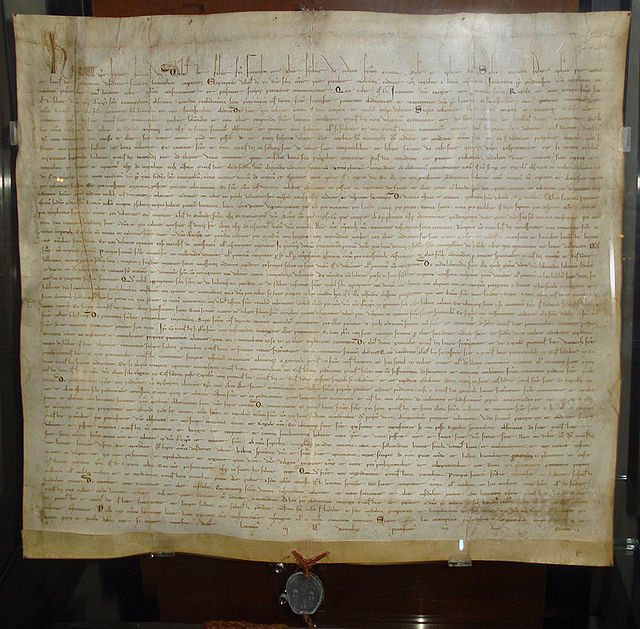The Franciscans are a group of related mendicant religious orders of the Catholic Church. Founded in 1209 by the Italian saint Francis of Assisi, these orders include three independent orders for men, orders for nuns such as the Order of Saint Clare, and the Third Order of Saint Francis open to male and female members. They adhere to the teachings and spiritual disciplines of the founder and of his main associates and followers, such as Clare of Assisi, Anthony of Padua, and Elizabeth of Hungary. Several smaller Protestant Franciscan orders or other groups have been established since late 1800's as well, particularly in the Anglican and Lutheran traditions.
Francis of Assisi, founder of the Order of Friars Minor; oldest known portrait in existence of Francis, dating back to his retreat to Subiaco (1223–1224)
Saint Francis Comforted by a Musician Angel, by Francisco Ribalta.
Regula bullata, the rule confirmed by Pope Honorius III
The Confirmation of the Franciscan Rule by Domenico Ghirlandaio (1449–1494), Capella Sassetti, Florence
Mendicant orders are, primarily, certain Roman Catholic religious orders that have adopted for their male members a lifestyle of poverty, traveling, and living in urban areas for purposes of preaching, evangelization, and ministry, especially to the poor. At their foundation these orders rejected the previously established monastic model. This model prescribed living in one stable, isolated community where members worked at a trade and owned property in common, including land, buildings and other wealth. By contrast, the mendicants avoided owning property at all, did not work at a trade, and embraced a poor, often itinerant lifestyle. They depended for their survival on the goodwill of the people to whom they preached. The members of these orders are not called monks but friars.
Cluny Abbey, a former Benedictine monastery in Saône-et-Loire, France. It was at one time the center of Western monasticism.





